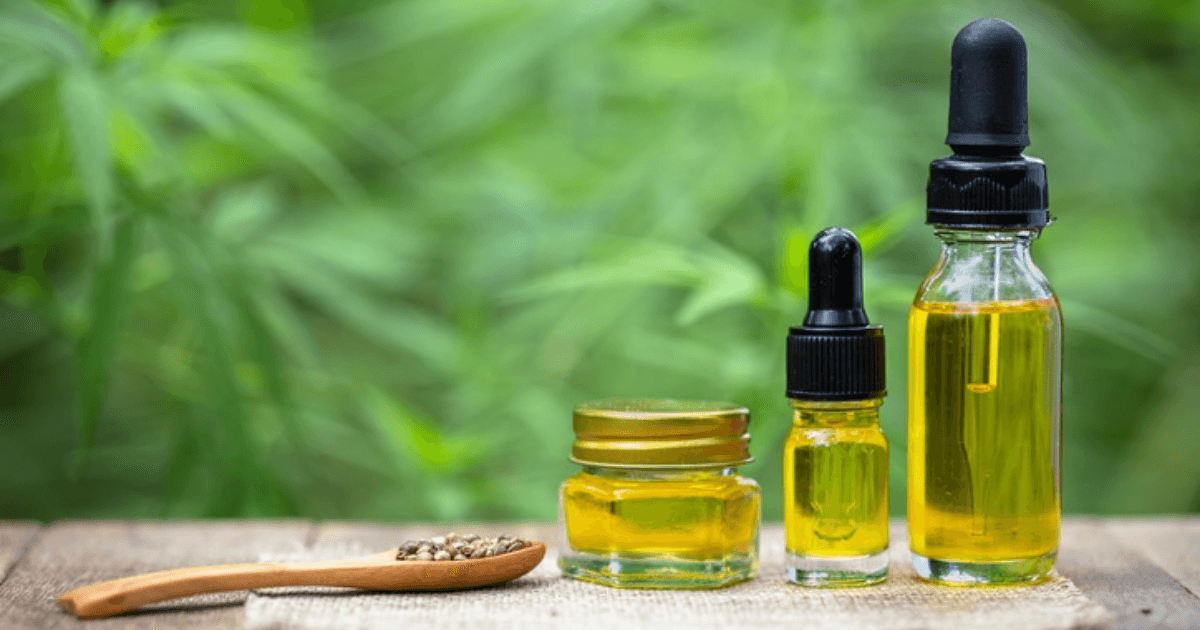CBD
CBD: 10 Insane Facts You Need to Know Backed by Science
CBD oil has been getting a lot of attention lately because of its potential health benefits. CBD is a compound found in cannabis.
Maybe you’re curious about CBD because you’ve heard some good things about it, or maybe you just want to learn more about it before deciding if it’s something you want to try.
No matter what your reason is, our selection of awesome facts is sure to give you a better understanding of CBD and its potential benefits.
Here are 10 interesting facts about CBD that you may not know. Grab some snacks, get comfortable, and come learn more about what CBD oil can do for you.
Top 10 Interesting CBD Facts
There are loads of interesting CBD facts, and since it is becoming such a popular form of natural treatment for health and wellness, we wanted to share some of the best ones with you.
All of our facts are backed by science, so you’re getting accurate information that will help you to learn more about what CBD oil has to offer.
#1 CBD Can’t Get You High
This is one of the most common misconceptions about CBD. CBD is found in cannabis, but it does not have the same effects as THC. CBD will not get you high, according to Health Line.
THC is the compound in cannabis that is responsible for its psychoactive effects. CBD does not have any psychoactive properties.
This means that it will not give you the feeling of being high, even though it can work to make you feel calmer and more relaxed.
CBD has been shown to actually counteract the psychoactive effects of THC. CBD is non-intoxicating, so you can use it without worrying about any negative side effects.
What About Where CBD Comes From?
You can actually get hemp-derived CBD oil as well as marijuana-derived CBD products. The difference between them is that CBD hemp oil is made by pressing hemp seeds (hemp seed oil) and contains no THC at all.
CBD oils and products that come from cannabis plants might contain trace amounts of THC because it is one of the compounds found in the cannabis plant and the CBD oil is not as pure.
Hemp-derived CBD is more commonly found in health food stores, and industrial hemp CBD oil products are the easiest to regulate with regard to ensuring there is no THC in it.
#2 CBD Works Well for Anxiety
Studies have shown that CBD is a great option for those who suffer from anxiety. CBD has been shown to help reduce anxiety and promote relaxation. CBD works by interacting with the body’s endocannabinoid system.
If you’re looking for a natural way to reduce anxiety, CBD may be a good option for you.
CBD has been shown to be effective in treating various forms of anxiety, including social anxiety disorder, panic disorder, and post-traumatic stress disorder.
#3 CBD Can be Used for Pain Relief
CBD oil and CBD gummies, are great options for pain relief. CBD has anti-inflammatory properties that can help to reduce swelling and inflammation. CBD also works to reduce pain by interacting with the body’s endocannabinoid system.
Studies have shown CBD to be effective in treating various forms of pain, including arthritis, migraines, fibromyalgia, irritable bowel syndrome, and general muscle aches.
If you’re looking for a natural way to reduce pain, CBD may be a good option for you.
#4 CBD is Legal but Unregulated
CBD is legal in most countries, but it is not regulated by the FDA. CBD products are not required to undergo the same rigorous testing as other medications.
This means that there is a lot of variation in CBD products. It’s important to do your research and only buy CBD products from trusted sources that have been through third-party testing.
#5 There is More Than One Type of CBD
There are three main types of CBD: CBD isolate, broad-spectrum CBD, and full-spectrum CBD. CBD isolate is pure CBD that has been isolated from other cannabinoids.
Full-spectrum CBD oil contains CBD along with other cannabinoids, terpenes, and flavonoids. This is because it usually comes from the cannabis plant.
Full-spectrum CBD is thought to be more effective than CBD isolate because of the entourage effect. The entourage effect is the synergistic interaction between CBD and other cannabinoids.
Full-spectrum CBD is also less processed than CBD isolate and contains all of the beneficial compounds found in cannabis.
Broad-spectrum CBD oil is similar to full-spectrum CBD but does not contain THC. Since it is CBD derived from cannabis and not as pure as isolate, there is still the risk of coming across THC and other compounds.
#6 CBD Can Help Those with Epilepsy and Seizures
CBD is a great option for those with epilepsy and seizures. CBD has been shown to help reduce seizures by interacting with the body’s endocannabinoid system.
CBD has been shown in research to be effective in treating various types of epilepsy, including Dravet syndrome and Lennox-Gastaut syndrome.
#7 CBD Dosage Still Needs Research
There is no CBD dose that has been proven to be effective for everyone. CBD dosages vary depending on the person’s weight, age, and health condition.
There have been several review studies on the dosage, and it has been shown that adults can tolerate up to 1500mg per day.
It’s important to start with a low CBD dosage and increase the dosage slowly over time until you find the right amount for you.
It’s also important to talk to your doctor before taking CBD, especially if you’re taking other prescription medications.
#8 CBD Reacts with Several Systems in the Body
CBD interacts with the body’s endocannabinoid system, as shown in several studies. This system is responsible for regulating various functions in the body, including mood, appetite, pain, and inflammation.
CBD also interacts with the body’s serotonin system, which is responsible for regulating mood and anxiety.
CBD has been shown to be effective in treating various medical conditions, including pain, inflammation, anxiety, and seizures.
#9 CBD is SAFE Even Though There Can be Side Effects
CBD is considered to be safe. CBD side effects are common and usually mild, as shown in recent studies. They include:
- drowsiness
- fatigue
- dry mouth
- diarrhea
- nausea
- appetite changes
- mood swings
- drug interactions
#10 CBD Could be Beneficial for Pets in the Future
CBD is not just for humans. CBD products are also being developed for pets. CBD pet products are not currently regulated by the FDA, but they are thought to be safe.
CBD may be a great option for pets that suffer from anxiety, pain, or inflammation, according to research.
CBD pet products are not currently available in all states.
To Conclude
CBD is a compound found in cannabis with a variety of potential health benefits. CBD is legal in most countries but is not regulated by the FDA. CBD products, are available in various forms, including CBD isolate, full-spectrum CBD, and broad-spectrum CBD.
CBD has been shown to be effective in treating various medical conditions, including pain, inflammation, anxiety, and seizures. CBD is considered safe, but there can be side effects. CBD products are also being developed for pets.
At Bulk Weed, we hope you found our facts interesting and that they helped you learn something new about CBD.
Sources:
Holland, K. (2019, August 23). Can You Get High from CBD or CBD Oil? Healthline. Available at: https://www.healthline.com/health/does-cbd-get-you-high
Blessing EM, Steenkamp MM, Manzanares J, Marmar CR. Cannabidiol as a Potential Treatment for Anxiety Disorders. Neurotherapeutics. 2015 Oct;12(4):825-36. doi: 10.1007/s13311-015-0387-1. PMID: 26341731; PMCID: PMC4604171. Available at: https://www.ncbi.nlm.nih.gov/pmc/articles/PMC4604171/
Argueta DA, Ventura CM, Kiven S, Sagi V, Gupta K. A Balanced Approach for Cannabidiol Use in Chronic Pain. Front Pharmacol. 2020 Apr 30;11:561. doi: 10.3389/fphar.2020.00561. PMID: 32425793; PMCID: PMC7204604. Available at: https://www.ncbi.nlm.nih.gov/pmc/articles/PMC7204604/
FDA. (2022). FDA Regulation of Cannabis and Cannabis-Derived Products, Including Cannabidiol (CBD). Available at: https://www.fda.gov/news-events/public-health-focus/fda-regulation-cannabis-and-cannabis-derived-products-including-cannabidiol-cbd
Timmons, J. (2022, July 20). CBD Shopping Guide: Which Type of CBD Should You Buy? Healthline. Available at: https://www.healthline.com/health/types-of-cbd
Silvestro S, Mammana S, Cavalli E, Bramanti P, Mazzon E. Use of Cannabidiol in the Treatment of Epilepsy: Efficacy and Security in Clinical Trials. Molecules. 2019 Apr 12;24(8):1459. doi: 10.3390/molecules24081459. PMID: 31013866; PMCID: PMC6514832. Available at: https://www.ncbi.nlm.nih.gov/pmc/articles/PMC6514832/
Larsen C, Shahinas J. Dosage, Efficacy and Safety of Cannabidiol Administration in Adults: A Systematic Review of Human Trials. J Clin Med Res. 2020 Mar;12(3):129-141. doi: 10.14740/jocmr4090. Epub 2020 Mar 2. PMID: 32231748; PMCID: PMC7092763. Available at: https://www.ncbi.nlm.nih.gov/pmc/articles/PMC7092763/
Zou S, Kumar U. Cannabinoid Receptors and the Endocannabinoid System: Signaling and Function in the Central Nervous System. Int J Mol Sci. 2018 Mar 13;19(3):833. doi: 10.3390/ijms19030833. PMID: 29533978; PMCID: PMC5877694. Available at: https://www.ncbi.nlm.nih.gov/pmc/articles/PMC5877694/
Iffland K, Grotenhermen F. An Update on Safety and Side Effects of Cannabidiol: A Review of Clinical Data and Relevant Animal Studies. Cannabis Cannabinoid Res. 2017 Jun 1;2(1):139-154. doi: 10.1089/can.2016.0034. PMID: 28861514; PMCID: PMC5569602. Available at: https://www.ncbi.nlm.nih.gov/pmc/articles/PMC5569602/
Morris EM, Kitts-Morgan SE, Spangler DM, McLeod KR, Costa JHC, Harmon DL. The Impact of Feeding Cannabidiol (CBD) Containing Treats on Canine Response to a Noise-Induced Fear Response Test. Front Vet Sci. 2020 Sep 22;7:569565. doi: 10.3389/fvets.2020.569565. PMID: 33195551; PMCID: PMC7537661. Available at: https://www.ncbi.nlm.nih.gov/pmc/articles/PMC7537661/



